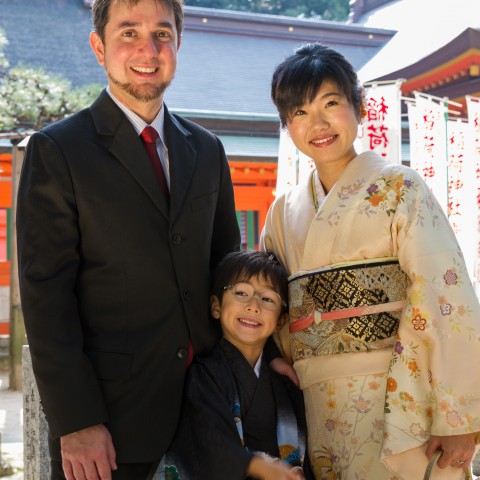
The Bulgarian language is not an easy one for English speakers to learn. Being part of the Slavic language family, it differs quite a bit from the Germanic and Romance languages. Not only do learners have to get used to the Cyrillic alphabet, but they must also learn all the noun and adjective endings for different genders, the verb conjugations for different tenses, and so on.
Feeling intimidated already?
Don’t worry! BulgarianPod101 is here to encourage you.
Although it might take some time, learning Bulgarian is possible. In this article, we’ll teach you how to learn Bulgarian faster and more effectively for the best results.
There are three things you’ll need if you want to master the language:
- Motivation. In order to succeed, you need to maintain a high level of motivation during the entire learning process. One way you can do this is to stick to a schedule. Of course, in order to make a good plan, you’ll need to know how long it would take to learn Bulgarian to reach a beginner, intermediate, or advanced level. Don’t worry: Our guide will give you practical information regarding what kind of time commitment you’re looking at.
- Persistence. You’ll come across some difficult topics and subjects throughout the course of your studies, but it’s important to continue your learning in order to advance. Each challenge you overcome will make you a more successful language learner.
- Achievement. When you see your first marks of progress, you’ll be motivated to continue your studies. The more achievements you see, the more motivated you’ll be to learn the Bulgarian language in full.

 Table of Contents
Table of Contents
- 3 Factors That Play a Huge Role in Bulgarian Language Learning
- Comparison Between Bulgarian and Other Languages
- How Long Does it Take to Achieve aBeginner Level?
- How Long Does it Take to Achieve an Intermediate Level?
- How Long Does it Take to Achieve an Advanced Level?
- How BulgarianPod101 Can Help You Learn the Bulgarian Language
3 Factors That Play a Huge Role in Bulgarian Language Learning
There are three main factors that determine how long it takes to learn Bulgarian:
- Attitude. Having a positive attitude toward learning will make the process much easier and more enjoyable for you. Try to be as dedicated as possible, and view this as an opportunity to broaden your horizons.
- Time. The more time you study and practice the language, the less time it will take to get used to it.
- Attentiveness. Some people have a talent for learning foreign languages quickly. If you’re among them, consider yourself lucky! The learning process will require less effort from you compared to other learners. But regardless of your natural inclinations toward language learning, you should always strive to be attentive in your studies!

Comparison Between Bulgarian and Other Languages
The time it will take you to learn Bulgarian depends, to some extent, on your first language. If you’re a native English speaker, then you might find the Bulgarian language more difficult to learn than other languages (like French, Spanish, or Italian).
One of the reasons for this is the existence of a third gender (neuter) in Bulgarian, compared to the two genders (masculine and feminine) used in the Romance languages mentioned above. This means that Bulgarian learners have to learn more noun and adjective forms, as well as how to identify the three different genders.
In addition, Bulgarian belongs to the group of Slavic languages, which are more challenging to learn compared to the other European languages. There are many irregular forms of verbs, noun cases, exceptions to the rules, etc. that make studying more difficult.
However, learning the Bulgarian language is not Mission Impossible as long as you dedicate your time and efforts to achieving this goal. Below, we’ll discuss how long it takes to master each of the Bulgarian language levels based on research by the Foreign Service Institute (FSI).
How the Foreign Service Institute Ranks Bulgarian
The FSI has divided foreign languages into four categories. Category I languages are the most similar to English (and thus easier to learn), while Category IV languages are the least similar (and most difficult to learn).
Category I languages include Spanish, French, and Italian, for instance. These take an English speaker roughly 24 weeks (600 hours) of intensive study to reach speaking and reading proficiency.
On the other end of the scale are Category IV languages, which include Arabic, Korean, and Japanese, for example. These languages take about 88 weeks (2200 hours) to fully master.
So where exactly does Bulgarian fall?
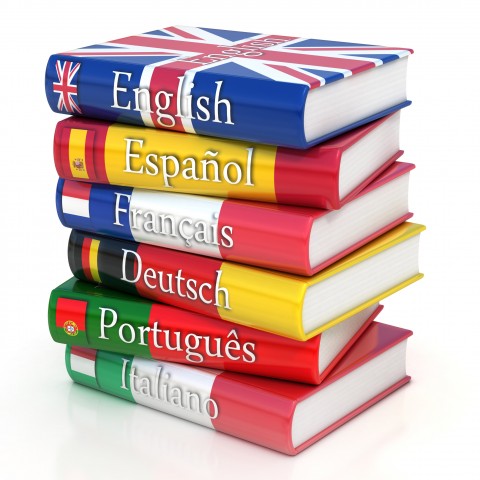
The FSI classifies Bulgarian as a Category III language. Other languages in this category include Czech, Polish, Turkish, and Greek. These languages take about 44 weeks (1100 hours) of study to master.
So if you would like to learn Bulgarian, you may need almost a full year of studying to gain fluency in speaking, reading, and writing, and to communicate freely with Bulgarians. Although this might seem like a long time, you can succeed if you’re persistent in your efforts and accumulate knowledge slowly but surely.
That said, you can start speaking Bulgarian way sooner! If you follow the lessons prepared by BulgarianPod101, you’ll be able to start communicating with native speakers within a few weeks. Don’t you think it’ll be worth the effort?
Additional Note: Keep in mind that Bulgarian learners who already know Russian or another Slavic language will have a much easier time picking up the language. This is because Bulgarian and other Slavic languages have many things in common.
How Long Does it Take to Achieve a Beginner Level?

What language skills are developed at the beginner level?
The beginner level encompasses levels A1 and A2.
It involves comprehension of everyday expressions and simple conversations. For example, you’ll be able to greet someone, introduce yourself, and ask questions to maintain a conversation at a simple level, if your interlocutor speaks slowly enough. You’ll also be able to express your needs to others.
How do you know whether you’re at the A1 or A2 level? If any of these things apply to you, you’re probably still at the A1 level:
- The Bulgarian language is completely new to you
- You may have lived for a short time in Bulgaria, but you know only a few words and phrases
- You may have started to study this language on your own, but without sufficient practice
How long does it take to become a beginner-level Bulgarian speaker?
It usually takes 2 months (50 hours) to master these basic Bulgarian language skills.
How can you reach this level faster?
If you would like to accelerate your progress, you can watch YouTube channels that teach the Bulgarian language to beginners. A good place to start is Learn Bulgarian with BulgarianPod101.com, where you can find hundreds of free lessons to help you advance much more quickly.
Using flashcards to remember new words is also very useful at this level of language study. Wondering how to learn Bulgarian faster using mobile flashcards? You can learn more about this method on our website!
Absolute Beginner Pathways for Bulgarian Learners
Here are some tips on how to learn Bulgarian online using BulgarianPod101.com!
- Start with the Bulgarian alphabet.
The Bulgarian alphabet is the foundation upon which you’ll build the rest of your language skills. Do not skip or postpone this step! We recommend starting with our free alphabet guide for absolute beginners, which will help you quickly become familiar with the Bulgarian alphabet. It might take you up to a week to feel completely comfortable with it, but it’s well worth the effort.
- Go through some well-structured audio lessons.
Becoming comfortable with audio material right from the start will really help speed up your progress. You can check out our 3-Minute Bulgarian series, which consists of 25 three-minute lessons suitable for beginners. You’ll get acquainted with topics such as self-introductions, greetings, manners, asking questions, making apologies, and much more. It might take you a couple of weeks to get through the series, depending on how many lessons you do each day.
- Study longer, more complicated beginner lessons.
Next, you might want to go through our Absolute Beginner pathway. It features 25 lessons (about 10 minutes each) that will help you better assimilate the information from the previous course and learn new vocabulary/skills. By the end of this series, you’ll be able to express your thoughts, needs, and questions more effectively. It might take 2-3 weeks of study and practice to feel confident speaking with your Bulgarian interlocutors.
Bonus: How much Bulgarian can you learn in 60 minutes? To find out, try out our 60-minute course Lessons for Your Flight to Bulgaria! If you’re an A2-level learner, you’ll find this easy to complete—but it’s still a great way to reinforce your vocabulary knowledge.
How much time will it take to reach beginner-level Bulgarian with BulgarianPod101.com?
| Mastering the Bulgarian Alphabet | Up to 1 week |
| 3-Minute Bulgarian Series | Up to 2 weeks |
| Absolute Beginner Pathway | Up to 3 weeks |
It takes a maximum of 6 weeks to reach the beginner Bulgarian level with our platform. Not that bad, right?
- We’ve also prepared a bunch of interesting 1-minute animated series videos that are well-suited for absolute beginners.
How Long Does it Take to Achieve an Intermediate Level?
What language skills are developed at the intermediate level?
The intermediate level (B1 and B2), can be summed up in just one word: communication.
At this stage, you have the ability to communicate about broad topics that aren’t too complicated. These topics usually involve hobbies, weather, work, education, details about locations, holidays, etc. You’ll also be able to describe experiences, events, ideas, projects, likes, and dislikes; you could lead conversations with local Bulgarians more freely.
At the B2 level, you’ll have additional fluency when communicating on a wider range of contexts.
Do any of the following points apply to you? Then it means you’re ready to start studying at the intermediate level.
- You have already completed the A2 level.
- You’re able to lead basic conversations.
- You require some extra practice in both spoken and written Bulgarian.
- You would like to get prepared for an upcoming Bulgarian language exam.
How long does it take to become an intermediate-level Bulgarian speaker?
It usually takes 4 months (80-90 hours) to master these intermediate Bulgarian-language skills. This timeframe applies to intensive learners who study every day for about 4 hours. For those who study every other day, it may take 8 or more months to achieve this stage.

How can you reach this level faster?
If this sounds like a long time to you, here are some tricks and tips on how to learn Bulgarian quickly at this stage:
- Watch Bulgarian movies with English subtitles online.
- Listen to popular Bulgarian songs with English subtitles.
- Watch popular satirical Bulgarian TV shows.
- Read Bulgarian books online.
- Make use of language learning apps.
- Watch free Bulgarian lessons on YouTube.
Also make sure to check out our list of 5 Tips to Reach Intermediate Level!
Intermediate-Level Pathways for Bulgarian Learners
After achieving a basic level of Bulgarian, you may find that things become harder to learn. The new information is more complicated and should be gradually added to your existing knowledge. You’ll need to engage in many more practical exercises to start advancing.
BulgarianPod101 has prepared appropriate lessons for this language level as well, to help intermediate learners accelerate their progress at this stage.
- All About
Our All About course consists of 15 short audio lessons that will help you learn all about the society and culture of Bulgaria. The total duration of this series is 1hr 51min.
- Conversational Phrases
This is another short course of 10 audio lessons with a total duration of just 10 minutes. It will get you acquainted with more conversational phrases and teach you common words you’ll need in your conversations.
- Essential Bulgarian for Emergencies
This course consists of 8 lessons, and it’s a very practical set that will help you develop intermediate-level skills you can use in a pinch.
- Level 3 Bulgarian
As you start to feel more confident with level B1, you can try out our Level 3 Bulgarian pathway. It features 25 lessons for a total duration of 6hrs 21min; there are also 10 assignments to complete. This course is aligned with level B1 of the CEFR scale.
How Long Does it Take to Achieve an Advanced Level?
What language skills are developed at the advanced level?
The advanced level is commonly referred to as C1-C2 and is very close to the native language level. The C2 level is considered to be the highest proficiency possible, and reaching it means you can use Bulgarian fluently in nearly all contexts.
Upon reaching an advanced level, you’ll be able to…
- …talk with native speakers fluently, without needing to grasp for specific words or phrases.
- …communicate with others about many different topics (personal experiences, professions, science, etc.).
- …build a variety of complex sentences in all tenses.
In addition, native Bulgarian speakers will be able to easily understand your thoughts and opinions when you speak.
It’s important to note that lessons at this level no longer focus on grammar. Usually, they include reading or listening to media on different subjects in the Bulgarian language, as well as lectures and workshops.

You’re ready to start studying advanced Bulgarian if the following points apply to you:
- You’ve completed the B2 level and you use Bulgarian grammar correctly.
- You’re planning to work or study in Bulgaria.
- You’re not satisfied with an average knowledge of Bulgarian and would like to gain fluency.
This level is definitely for those who are ready to double their efforts!
How long does it take to become an advanced-level Bulgarian speaker?
As we mentioned above, Bulgarian is a Category III language, meaning that it features significant cultural and linguistic differences from English.
To achieve proficiency in Bulgarian, intensive learners will need at least 1100 hours (44 weeks) of study. This equates to 5 hours per day, 5 days per week. You’ll need almost a full year of study to reach the C1 level of Bulgarian at this pace. If you study 2 hours a day (or less), you’ll need about 2 years to achieve this level.
How can you reach this level faster?
Although achieving the C1 level is not easy and takes a long time, there are some tips you could try in order to reach your goal faster:
- Find a native Bulgarian friend with whom you can often communicate.
- Spend a few months in Bulgaria to experience deep immersion into its language and culture.
- Watch special Bulgarian lessons intended for advanced learners.
- Continue to read, write, and listen in Bulgarian on a daily basis.
Advanced-Level Pathways for Bulgarian Learners
Are you serious about your studies and want some tips on how to learn Bulgarian faster? BulgarianPod101.com offers our advanced students plenty of fun and effective lessons to help enhance their skills.
- Level 5 Bulgarian
This advanced lesson pathway features 25 lessons for a total duration of 1hr 21min. This course is aligned with level C1 of the CEFR and covers topics including the top 10 Bulgarian tourist destinations, the top 10 Bulgarian leaders, and the top 10 Bulgarian writers.
- Listening Comprehension for Advanced Learners
Another great course is our Listening Comprehension for Advanced Learners series. Each lesson includes dialogues, answers to questions, and a full breakdown. The total duration of these 20 lessons is 1hr 9min.
- Video Culture Class: Bulgarian Holidays
We also offer a video culture class series that talks about different Bulgarian holidays. It consists of 25 lessons of 3-4 minutes each.
If you’re looking for even more ways to stay motivated, check out the Innovative Language 101 app for mobile devices. It allows you to learn Bulgarian anywhere, anytime! This innovative app is appropriate for all levels, so don’t miss out.
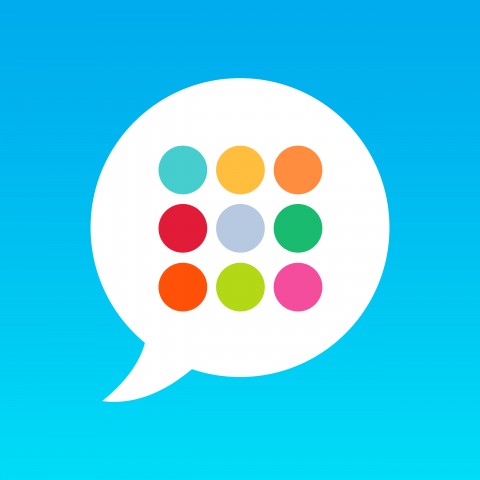
How BulgarianPod101 Can Help You Learn the Bulgarian Language
In this article, we talked about how long it takes to learn Bulgarian for each level of proficiency. We also discussed what’s expected of learners at each level and how to reach your learning goals faster with BulgarianPod101.com.
There’s still one key feature of our site we haven’t mentioned yet: MyTeacher for Premium PLUS members. With this service, you can get one-on-one tutoring and help from a native Bulgarian teacher. He or she can help you learn Bulgarian faster by guiding you step by step through the language—vocabulary, grammar rules, pronunciation, and more—so you can reach your desired proficiency level with little problem.
Before you go, we’re curious: How likely are you to start learning Bulgarian after reading this article? Feel free to reach out with any questions or concerns you still have—we’ll be glad to help!

How Hard is it to Learn Bulgarian? Overcome the Difficulties.

Learning a new language is like starting a new journey! It opens up hundreds of opportunities for you and acquaints you with different ways of thinking, unknown cultures, unique people, a rich history, and ways of life you may not be familiar with. By learning a country’s language, you also learn about that country’s cuisine, festivals, traditions, and customs. And considering the rich cultural heritage of Bulgaria, Bulgarian is one language you’ll love learning.
That said, how hard is it to learn Bulgarian?
If you start by learning the grammar—all those endless verb forms and conjugations, as well as the adjectives and their forms—there’s a good chance that you’ll soon become lost in the multiple rules and give up. This is not a good way to start, especially if you’re an absolute beginner.

As you can see, how difficult Bulgarian is for you depends on how you choose to learn. Yes, learning a new language can be a challenge, but anyone can do it! BulgarianPod101 is here not only to motivate you in your studies and to dispel all your doubts, but also to make the process of learning fun and pleasurable—just like each new journey should be.
So let’s take a look at what things might make the Bulgarian language hard to learn and how to overcome them. See for yourself that it is easy to learn Bulgarian with BulgarianPod101.
 Table of Contents
Table of Contents
- Is it Hard to Learn Bulgarian?
- What are the Hardest and Easiest Parts of Learning Bulgarian?
- I Want to Learn Bulgarian. Where Should I Start?
- Five Tips for New Bulgarian Learners
- Why Don’t You Start Learning Bulgarian Right Away? (4 Practical Exercises)
- Why is BulgarianPod101 Great for Learning Bulgarian?
1. Is it Hard to Learn Bulgarian?
The very first challenge that new Bulgarian-learners face is studying the Cyrillic alphabet. Yes, it’s completely different from the Latin alphabet, but fortunately, there’s an easy way to learn the Bulgarian alphabet. Let’s study it together!
How to Learn the Bulgarian Alphabet Easier
To make the learning process easier, let’s review the Bulgarian alphabet in chunks. We’ll start with the similarities that you can easily recognize between the two alphabet systems.
| Bulgarian Letters | English Letters |
| Аа | Аа |
| Бб | Bb |
| Дд | Dd |
| Ее | Ee |
| Зз | Zz (note that this Bulgarian letter looks like the cursive ‘Z’ in English) |
| Кк | Kk |
| Мм | Mm |
| Оо | Oo |
| Тт | Tt |
Isn’t it great that you already know nine Bulgarian letters? Let’s move on.
The next thing to remember is that:
- The Bulgarian В is not the English B
- The Bulgarian H is not the English H
- The Bulgarian P is not the English P
Here’s how to remember them:
| Bulgarian Вв | English Vv |
| Bulgarian Hн | English Nn |
| Bulgarian Pр | English Rr |
So far, we’ve covered twelve out of thirty Bulgarian letters. Not bad, right? Let’s move forward.
| Bulgarian Letters | English Letters |
| Гг | Gg |
| Пп | Pp |
| Фф | Ff |
| Лл | Ll |
| Уу | Uu (pronounced like “oo” in “tool”) |
| Хх | Hh |
| Ии (like opposite N) | Ii (pronounced like “i” in “igloo”) |
| Cc | Ss |
Twenty letters so far. Let’s practice their pronunciation! Try to read the following words, and then check their pronunciation in parentheses below! To get a headstart in your vocabulary learning, you can also make flashcards for these words.
- баба, каза, мама, коза, мотор, паун, доктор, ухо
(baba, kaza, mama, koza, motor, paun, doktor, ooho)
grandma, said, mom, goat, motor, peacock, doctor, ear
Excellent! Now, let’s study ten more Bulgarian letters.
Although English-speakers are not accustomed to these next letters (as most of them are pronounced as a combination of two or more sounds), we believe that you’ll get used to them with some practice. For example, you can study two letters a day (one in the morning and one in the evening) and have them memorized in just five days!
| Bulgarian Letters | English Letters |
| Жж | Pronounced like ZH or like S in “treasure” |
| Йй | Pronounced like Y in “yes” |
| Цц | Pronounced like TS in “fits” |
| Чч | Pronounced like CH in “church” |
| Шш | Pronounced like SH in “shoe” |
| Щщ | Pronounced like SHT in “shtick” |
| Ъъ | Pronounced like U in “turn” |
| ь | Soft sign |
| Юю | Pronounced like YU or U in “menu” |
| Яя (like a backwards R) | Pronounced like YA in “yacht” |
The easiest way to get used to these letters is through practical reading exercises. For example, try to read the following word:
- мартеница
(martenitsa)
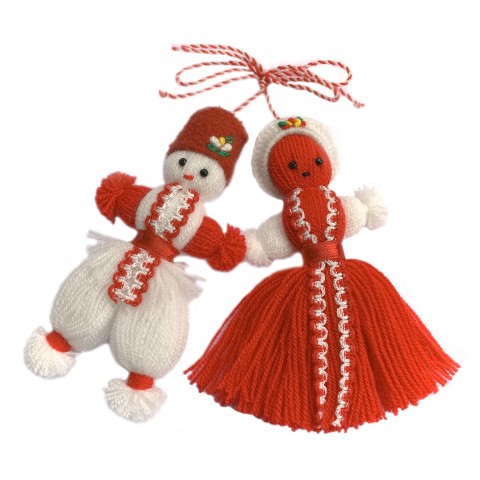
You can read more about the Bulgarian мартеница, which will help you learn more about the traditions of this country.
Here are a few more words for practicing your Bulgarian reading skills:
- щастие, шал, човек, цвете, жаба
(shtastie, shal, chovek, tsvete, zhaba)
happiness, scarf, man, flower, frog
Don’t forget to make more flashcards! We’ll be practicing some of these words again in a later section of this article. Hopefully, this new approach to learning the Bulgarian alphabet will help you memorize it easier.
- ➢ BulgarianPod101 has prepared a detailed guide to the Bulgarian alphabet that can be downloaded here for free. We highly recommend it for beginners!
2. What are the Hardest and Easiest Parts of Learning Bulgarian?
Now that you’ve overcome the first difficulty, which is learning the Bulgarian alphabet, let’s take a look at what makes Bulgarian hard to learn (and which things make it pretty easy).
What is the Hardest Part of Learning Bulgarian?
One of the biggest difficulties for Bulgarian-learners is pronunciation, especially when Bulgarian textbooks make it seem even more complicated. But how difficult is it to learn Bulgarian pronunciation and phonetic changes, really? Well, once you have the alphabet down, the process really isn’t so difficult. These five tips will help you a lot!
Tip #1 – Imitate native Bulgarian-speakers!
The more you listen to how natives speak, the better. Doing so will allow you to get used to the proper pronunciation and the accents. Just like little children, we learn better by imitating others than by reading rules and instructions.
Tip #2 – Start reading short Bulgarian texts by repeating what you hear!
The best way to do this is by listening to a dialogue between native speakers and repeating what they say. Luckily, BulgarianPod101.com has tons of audio and video lessons featuring native speaker dialogues with transcripts. Perfect for practicing your reading, listening, and speaking skills at the same time!

Tip #3 – The more you practice, the better your pronunciation will get!
While you can’t expect to have perfect pronunciation after only a month of practice, practicing every day will significantly improve your pronunciation over time. This is because you’ll get used to the difficult words through exposure, and they won’t seem so hard anymore.
Tip #4 – Don’t be afraid to talk to others in Bulgarian!
This is the most important tip! Even if your pronunciation isn’t very good yet, try to speak daily with native Bulgarians. This will improve your pronunciation little by little.
Tip #5 – Learn the longer words in chunks!
The long words are hardest to pronounce. But if you divide them into syllables, the pronunciation will seem much easier. For example:
- Здравейте
(Zdraveyte)
“Hello” – for formal or plural form
Can be divided into:
Здрав – ей – те – and the accent falls on the second syllable
- Благодаря
(Blagodarya)
“Thank you!”
Can be divided into:
Благо – да – ря – and the accent falls on the last syllable
- ➢ On BulgarianPod101.com, you can find our Ultimate Bulgarian Pronunciation Guide, which will help you overcome the hardest part of learning Bulgarian.
Is it Hard to Learn Bulgarian Verbs?
The answer is yes, unless you know this trick to memorize them easier:
Divide the verbs into groups with common roots and different prefixes that change the meaning of each verb. Here’s an example of such a group:
| Bulgarian verb + pronunciation | English meaning |
| казвам (kazvam) | “I say” |
| приказвам (prikazvam) | “I speak” |
| разказвам (razkazvam) | “I narrate” |
| доказвам (dokazvam) | “I prove” |
| наказвам (nakazvam) | “I punish” |
| показвам (pokazvam) | “I show” |
| изказвам (izkazvam) | “I express” |
| наприказвам (naprikazvam) | “get my fill of talking” |
And here’s another example:
| Bulgarian verb + pronunciation | English meaning |
| пиша (pisha) | “I write” |
| впиша (vpisha) | “I еnter” (like entering a name on a list) |
| напиша (napisha) | “I write down” |
| допиша (dopisha) | “I finish writing” |
| запиша (zapisha) | “I note down” |
| надпиша (nadpisha) | “I inscribe” |
| изпиша (izpisha) | “I cover with writing” |
| подпиша (podpisha) | “I sign” |
| препиша (prepisha) | “I transcribe” |
| припиша (pripisha) | “I ascribe,” “I attribute” |
| отпиша (otpisha) | “I unsubscribe” |
You can make flashcards for these verb groups to memorize them easier.
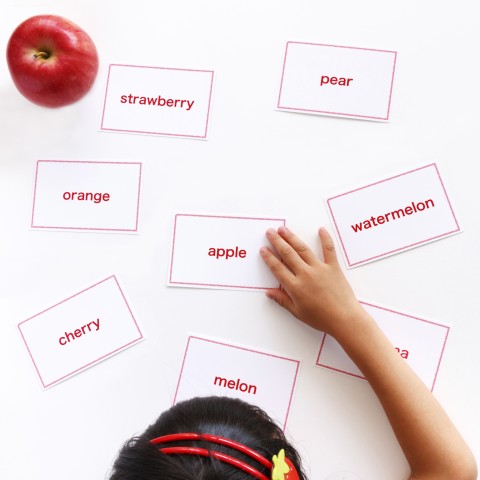
- ➢ See BulgarianPod101’s list of the 50 Most Common Bulgarian Verbs and their pronunciation!
What is the Easiest Part of Learning Bulgarian?
It’s reasonable to start learning the easiest part of Bulgarian first: cognate words, or the ones that sound and look similar in English and Bulgarian. If you’ve learned the Bulgarian alphabet, you’ll see how easy it is to learn Bulgarian words that have a common origin with those in English.
Here are some examples of cognate words:
| Bulgarian word + pronunciation | English meaning |
| студент (student) | “student” |
| идeя (eedeya) | “idea” |
| банан (banan) | “banana” |
| клас (klas) | “class” |
| център (tsentar) | “center” |
| сестра́ (sestra) | “sister” |
| хумор (humor) | “humor” |
| проект (proyekt) | “project” |
| филм (film) | “film,” “movie” |
Again, we recommend that you make flashcards of these cognates. We’ll be going over them again in section five.
- ➢ Want to make even more flashcards? See our list of the 100 Core Bulgarian Words.
3. I Want to Learn Bulgarian. Where Should I Start?
We’ve already mentioned that the best starting point for learning Bulgarian is to memorize the alphabet, and then make flashcards of cognate words. Here, we’ll give you some simple tips that will motivate you and help you achieve your desired Bulgarian fluency!
Tip #1 – Make your own achievable schedule with pre-set goals.
Try to divide your learning into easy stages and set a specific period of time to study each new level. If you’re motivated enough to learn Bulgarian, you should set aside at least fifteen minutes a day to study. This is a good amount of time that will allow you to really learn something without interfering with your schedule. Regular learning is essential for your progress, so don’t be lazy by skipping a day or two!
Imagine your language learning as a wall that you have to build by adding bricks daily. Each day of study equals one more brick. But if you stop studying the language for a long period of time, it’s quite probable that some of your bricks will fall out and bring down the rest of the wall.

Tip #2 – Make your learning fun!
There are a few ways to achieve this. For example, you can make your own flashcards and play a game with them, watch intriguing TV series in Bulgarian, learn about dates in Bulgarian, listen to popular Bulgarian songs, and the list goes on.
If there’s a topic you’re interested in, you can start by learning related Bulgarian vocabulary, doing research, and studying materials from Bulgarian sources.
Tip #3 – Find a Bulgarian friend!
One of the best ways to practice Bulgarian is to speak with a real Bulgarian. Find a Bulgarian friend to help you improve your conversational skills and achieve fluency faster. By speaking with him or her, you’ll remove your language barrier faster and increase your confidence, which is a surefire way to success.
Tip #4 – Review what you have learned so far!
It’s essential to review new vocabulary at least once a week until you get used to it. Your brain needs time to build solid roads in the new language, so you have to go through these new words often until they go from being tiny paths to being wide highways.
Tip #5 – Don’t give up!
There will be moments when learning Bulgarian won’t be as easy and fun as you wish. You just need to overcome these challenges instead of giving up. Don’t be afraid of making mistakes, as mistakes will help you get better.
Here’s a motivational thought from Theodore Roosevelt: “Believe you can and you’re halfway there.” In Bulgarian, this is:
- Ако вярвате, че можете, вече сте изминали половината път.
(Ako vyarvate, che mozhete, veche ste izminali polovinata pat.)

4. Five Tips for New Bulgarian Learners
Want to learn Bulgarian easy and fast? BulgarianPod101 has some tips for new learners! Follow our advice, and you’ll learn to speak Bulgarian in no time.
Tip #1 – Do all five!
The five elements of language-learning are: watching, reading, listening, writing, and speaking. To improve your Bulgarian language skills, you need to advance in all of these elements. How can you do this?
- Watching: Watch Bulgarian TV shows, Bulgarian movies, or Bulgarian news channels on a daily basis.
- Reading: Read Bulgarian books in your favorite genre, articles, news, letters, etc.
- Listening: You can listen to Bulgarian radio or even popular Bulgarian songs.
- Writing: Write as many new words as possible, and try forming sentences with them.
- Speaking: Don’t be afraid of speaking Bulgarian with your Bulgarian friend, in the shop, or wherever you go.
Tip #2 – Repeat, repeat, repeat…
In order to get used to the language’s rhythm, listen to new phrases and sentences over and over again until you start to recognize and understand the meaning. Try to imitate the native speaker as closely as possible.
Tip #3 – Perfect your pronunciation!
You can achieve some great results by using a voice-recording tool. It will allow you to listen to your pronunciation and compare it to that of a native speaker. This way, you can more easily recognize the sounds that you pronounce differently and fix them.
Tip #4 – Take a dictionary wherever you go!
This is a great way to learn new words while waiting in line, drinking your coffee, or even while you’re out walking. This is a natural way to learn during your free time.
Tip #5 – Master recorded dialogues!
Whenever you listen to recorded dialogues by native speakers, pay extra attention. Study the lines, learn them by heart, and begin understanding how to reply to someone in everyday conversations.
Another great way to learn Bulgarian is by using a Bulgarian app.
5. Why Don’t You Start Learning Bulgarian Right Away? (4 Practical Exercises)
You don’t have to wait any longer to start learning Bulgarian! Simply complete the following exercises, starting with the Bulgarian alphabet.
Exercise 1: Practice the Bulgarian Alphabet
Complete the table by filling in the English version of the following letters:
| Bulgarian Letters | English Letters |
| Аа | |
| Бб | |
| Дд | |
| Ее | |
| Зз | |
| Кк | |
| Мм | |
| Оо | |
| Тт |
That was easy, right? Now, let’s make things harder. Write the Bulgarian version of these English letters:
| Bulgarian Letters | English Letters |
| Gg | |
| Pp | |
| Ff | |
| Ll | |
| Uu (pronounced like “oo” in “tool”) | |
| Hh | |
| Ii (pronounced like “i” in “igloo”) | |
| Ss |
The hardest part is below. Write the English versions of the following Bulgarian letters. (Note that the first three look like specific English letters, but are different.)
| Bulgarian Letters | English Letters |
| Вв | |
| Нн | |
| Рр | |
| Жж | |
| Йй | |
| Цц | |
| Чч | |
| Шш | |
| Щщ | |
| Ъъ | |
| ь | |
| Юю | |
| Яя |
Exercise 2: Practice Reading
Now that you know the alphabet, it’s time to start reading. Read the following words out loud and check their pronunciation and meaning:
- кокошка (kokoshka) – “hen”
- октопод (oktopod) – “octopus”
- врата (vrata) – “door”
- къща (kаshta) – “house”
Now, let’s read some simple sentences:
- Той отвори вратата.
(Toy otvori vratata.)
“He opened the door.”
- Вратата на къщата е бяла.
(Vratata na kashtata e byala.)
“The house’s door is white.”
- Вратата на къщата се отвори.
(Vratata na kashtata se otvori.)
“The house’s door opened.”
- Кокошката влезе през вратата.
(Kokoshkata vleze prez vratata.)
“The hen came in through the door.”
Exercise 3: Practice Flashcards
If you’ve been following our guidelines, you should have about forty flashcards so far with nouns and verbs. If you haven’t made them yet, it’s time to write and review them now, before completing this exercise.
Find the following flashcards: студент, пиша, проект. Place them in a row in this order. Now, let’s write down a grammatically correct sentence.
- Студентът пише проект.
(Studentat pishe proekt.)
“The student writes a project.”
Now, find these flashcards: човек, филм. Let’s write down a grammatically correct sentence.
- Човекът гледа филм.
(Chovekat gleda film.)
“The man is watching a movie.”
Now, find these flashcards: мама, записвам, идея. Let’s write down a grammatically correct sentence.
- Мама записва идея.
(Mama zapisva ideya.)
“Mom writes down an idea.”
Another great game with flashcards is to match each word with its English meaning.
Exercise 4: Introducing Yourself in Bulgarian
Let’s start with some simple sentences that you can use to introduce yourself:
- Здравейте! Аз съм (your name).
(Zdraveyte! Az sam)
“Hello! I am (your name).”
- А ти как се казваш?
(A ti kak se kazvash?)
“And what is your name?”
- Приятно ми е да се запознаем.
(Priyatno mi e da se zapoznaem.)
“Nice to meet you.”
- Откъде си?
(Otkade si?)
“Where are you from?”
- Аз съм от (your country here).
(Az sam ot)
“I’m from (your country here).”
BulgarianPod101 has a list of the Bulgarian pronunciations of some countries. Check it out and fill in the blank with your country.
In this ten-minute video, you can learn some other useful expressions that will help you introduce yourself in Bulgarian:
6. Why is BulgarianPod101 Great for Learning Bulgarian?
BulgarianPod101 is an inexhaustible source of materials, guides, and practical exercises that will help you learn and master the Bulgarian language. Our team of native Bulgarian professionals has prepared this and many other reviews and guides, many of which you can download or view for free. But in order to gain full access to all of our website’s features, sign up today and have seven days of complete access for free.
BulgarianPod101 even offers a free app that’s available for Android, iPhone, iPad, and Kindle Fire. In case this isn’t enough and you feel that you need professional guidance, you can choose your Bulgarian teacher from MyTeacher and he/she will help you learn Bulgarian in a way that works for you!
Did you find this article helpful? Have we motivated you to start learning Bulgarian? We look forward to hearing from you and will help out the best we can!

An Overview of the 10 Most Common Mistakes in Bulgarian

There’s a Bulgarian saying that states:
- Глупавият се учи от собствените си грешки, а умният – от грешките на другите!
Glupaviyat se uchi ot sobstvenite si greshki, a umniyat – ot greshkite na drugite!
“The fool learns from his own mistakes, and the smart person learns from the mistakes of others!”
So why not become one of those smart people yourself? You can learn from the Bulgarian mistakes other learners have made, instead of repeating them and getting into some awkward situations.
BulgarianPod101 has prepared this detailed overview of the most common mistakes in the Bulgarian language, providing you with detailed explanations of rules, plenty of examples, and tips for avoiding these Bulgarian mistakes in your conversations with native speakers. This article will help you gain more confidence in your communication with Bulgarians!
 Table of Contents
Table of Contents
- Pronunciation Mistakes
- Vocabulary Word Mistakes
- Word Order Mistakes
- Grammar Mistakes
- Short and Long Definite Article
- Common Verb Tense Mistakes
- Semantic Mistakes
- Mistakes Involving Typical Bulgarian Expressions
- Embarrassing Mistakes
- Other Mistakes
- How BulgarianPod101 Can Help You
1. Pronunciation Mistakes
Here are some common pronunciation mistakes for Bulgarian-learners that you can start avoiding right now. Just study the following pronunciation rules:
Rule #1: The Bulgarian letter “P”
The Bulgarian letter “P” is always pronounced as a trilled English “R,” and never pronounced like the “R” in words like “far” or “father.”
Bulgarians teach their children to pronounce this letter properly from an early age using this popular tongue-twister:
- Рачо реже риба.
Racho rezhe riba.
“The crab is cutting the fish.”
Rule #2: Voiced and voiceless consonants in Bulgarian
In Bulgarian, each voiced consonant has a voiceless counterpart. There’s only one voiceless consonant that doesn’t have a voiced counterpart, which is the letter “Х.” Take a look at these voiced-voiceless pairs:
| Voiced Consonants | VoicelessConsonants |
| Б | П |
| Д | Т |
| Г | К |
| В | Ф |
| Ж | Ш |
| З | С |
| ДЗ | Ц |
| ДЖ | Ч |
| Х |
It’s important to know them, because the voiced consonants are pronounced as voiceless when located at the end of a word. For example:
- In the word нож (nosh), meaning “knife,” Ж is pronounced as Ш, as it becomes voiceless at the end of the word.
- In the word град (grat), meaning “city,” Д is pronounced as Т, as it becomes voiceless at the end of the word.
- In the word ръкав (rakaf), meaning “sleeve,” В is pronounced as Ф, as it becomes voiceless at the end of the word.
The so-called devoicing of the consonants in Bulgarian also occurs when there are two or three consonants bunched together and the final consonant is voiceless. This voiceless consonant makes all the others in the group sound voiceless, too. For example:
- In the word дръжка (drashka), meaning “handle,” Ж is pronounced as Ш. This is because, in the pair ЖК, the final consonant is voiceless and assimilates the voiced consonant.
- In the word градски (gratski), meaning “urban,” Д is pronounced as Т. This is because, in the cluster ДСК, the final consonant is voiceless and assimilates the voiced consonant Д.
Rule #3: Pronunciation of “A” at the end of a word
Another common Bulgarian error happens when foreigners try to pronounce the “A” sound at the end of a word. Remember that when a Bulgarian word ends in “A,” it’s pronounced like “Ъ,” unless it is a stressed syllable. For example:
- In the word баба (baba), meaning “grandmother,” A is not pronounced like in the English word “father,” but more like the u in “ugly,” making the Bulgarian vowel Ъ.
- In the word кокошка (kokoshka), meaning “hen,” A should be pronounced like the Bulgarian vowel Ъ.
But:
- In the word баща (bashta), meaning “father,” A is pronounced like it is in the English word “father,” because the last A is stressed. However, the first A in this word is not stressed, and it will sound like Ъ.
- In the word кола (kola), meaning “car,” A is pronounced like it is in the English word “father,” because the last A is stressed.
By mastering these Bulgarian pronunciation rules, you’ll really impress your Bulgarian interlocutor, as these are the niceties of the language that most Bulgarian-learners don’t know.
- → BulgarianPod101 offers you our Ultimate Bulgarian Pronunciation Guide, which can greatly help you improve your Bulgarian pronunciation and avoid some common Bulgarian pronunciation mistakes.
2. Vocabulary Word Mistakes
Paronyms in the Bulgarian language
There are many words in Bulgarian that are pronounced similarly to each other, but have different meanings. These words are called paronyms, and Bulgarian-learners must learn how to distinguish between them to avoid embarrassing situations. Here are a few examples of them:
- жена (zhena) – “woman” vs. женя (zhenya) – “getting married”
- коза (koza) – “goat” vs. коса (kosa) – “hair”
- пица (pitsa) – “pizza” vs. птица (ptitsa) – “bird”
- пипам (pipam) – “touch” vs. питам (pitam) – “ask”
You might be able to imagine the confusion that might occur if you made the following compliment to a girl:
- Каква красива коза имаш!
Kakva krasiva koza imash!
“What a beautiful goat you have!”
Instead of:
- Каква красива коса имаш!
Kakva krasiva kosa imash!
“What beautiful hair you have!”

Homonyms in the Bulgarian language
Another group of tricky words in Bulgarian are the homonyms, which are written and pronounced the same way, but have different meanings. Here are some examples for you:
- син (sin) – “blue” vs. син (sin) – “son”
- бал (bal) – “grades” vs. бал (bal) – “ball”
- вила (vila) – “country house” vs. вила (vila) – “pitch-fork”
Usually, it’s easier to distinguish between these words in the context of a conversation. For example, if you meet someone who tells you:
- Аз имам син и дъщеря.
Az imam sin i dashterya.
“I have a son and a daughter.”
It’s obvious that he isn’t talking about the color blue.
Further, if син (sin) is used as an adjective, it’s clear that it means “blue” and not a son. Here’s an example:
- Моят панталон е син.
Moyat pantalon e sin.
“My pants are blue.”
3. Word Order Mistakes
Although Bulgarian word order is pretty flexible, there are some specific rules that should be followed when building Bulgarian sentences. Knowing these rules well will help you avoid some common mistakes in learning Bulgarian and enhance your communication with natives. These rules mainly have to do with the short form of the personal pronoun. Here are four rules with examples:
Rule #1: Never place the short form of the personal pronoun at the very beginning of the sentence.
Wrong: Му е лошо.
Mu e losho.
Correct: Лошо му е.
Losho mu e.
“He feels bad.”
Rule #2: When a sentence starts with a word other than a verb, the short form of the personal pronoun comes before the verb.
Wrong: Какво боли те?
Kakvo boli te?
Correct: Какво те боли?
Какво те боли?
“Where do you feel the pain?”
Rule #3: When a sentence starts with a verb, the short form of the personal pronoun comes right after the verb.
Wrong: Мe боли главата.
Me boli glavata.
Correct: Боли ме главата.
Boli me glavata.
“I have a headache.”

Rule #4: When a sentence is in the future tense, the short form of the personal pronoun comes right after “ще.”
Wrong: Ще попитам го.
Shte popitam go.
Correct: Ще го попитам.
Shte go popitam.
“I will ask him.”
4. Grammar Mistakes
There are a couple of things that Bulgarian-learners can keep in mind to easier understand and start applying grammar rules. Let’s examine them together to avoid the most common Bulgarian grammar mistakes.
English and Bulgarian cognates – nouns
Fortunately, Bulgarian and English have many cognates. These are words that sound similar in both languages because of their common etymological origin. Foreigners usually get used to these words faster than others. Such cognates include: fantasy, melody, concert, instrument, opera, theater, dramatic, and dynamic.
It’s easier to remember their Bulgarian form knowing that -Y in English turns into – ИЯ (ya) in Bulgarian.
- “melody” – мелодия (melodiya)
- “comedy” – комедия (komediya)
- “history” – история (istoriya)
TRY IT YOURSELF
* Knowing this rule, try to make the Bulgarian forms of the following English words yourself:
- fantasy
- agony
(The answers can be found at the end of this article.)
English and Bulgarian cognates – adjectives
Another rule to remember about cognates is related to adjectives. When the English adjective ends in – IC, its Bulgarian form most likely ends in -ЧЕН.
“academic“ – академичен (akademichen)
“dynamic” – динамичен (dinamichen)
“dramatic“ – драматичен (dramatichen)
TRY IT YOURSELF
* Knowing this rule, try to make the Bulgarian forms of the following English adjectives yourself:
- fantastic
- systematic
- tragic
(The answers can be found at the end of this article.)
Bulgarian verb conjugation
To avoid many mistakes in Bulgarian grammar, learn Bulgarian verb conjugations and learn them well. Foreigners usually make these grammar mistakes because they aren’t familiar with Bulgarian verb conjugation. For example, they say:
Wrong: Ние са от Америка.
Nie sa ot Amerika.
Instead of:
Correct: Ние сме от Америка.
Nie sme ot Amerika.
“We are from America.”
Or:
Wrong: Аз уморен.
Az umoren.
Instead of:
Correct: Аз съм уморен.
Az sam umoren.
“I am tired.”
- → BulgarianPod101 provides you with some great ways to improve your Bulgarian grammar. For example, we have tons of useful videos like this one:
5. Short and Long Definite Articles
There is a definite article in Bulgarian that’s added to the end of a noun instead of before it. However, the masculine gender has two forms of definite articles: long (-ът, -ят) and short (-а, -я). The long form is used for a noun that’s the subject of a sentence, while the short form is used for nouns that are direct/indirect objects.
Foreigners often say:
Wrong: Жена седи на балкон.
Zhena sedi na balkon.
Following the English:
“A woman is sitting on a balcony.”
However, since жена in the sentence above is the subject of the sentence, the word should be given a long definite article, which is -та for feminine nouns. Since балкон is not a subject, but rather an indirect object, it should be given a short definite article.
Correct: Жената седи на балкона.
Zhenata sedi na balkona.
“The woman sits on the balcony.”
Here’s another example:
Wrong: Кораб отплава в 8 часа.
Korab otplava v 8 chasa.
Correct: Корабът отплава в 8 часа.
Korabat otplava v 8 chasa.
“The ship departed at 8:00 a.m.”
Кораб is the subject of the sentence, which is why it has to be used with a long definite article (-ът for masculine nouns).

- → BulgarianPod101 reminds you to never be afraid of making mistakes, as it’s through mistakes that you’ll learn and progress. The more you practice, the better—even if it seems very difficult in the beginning.
6. Common Verb Tense Mistakes
A common mistake in Bulgarian involves using the incorrect verb tense, because foreigners often have trouble distinguishing between the past tenses. Take the past aorist tense, for example. Using an imperfective verb in a sentence indicates that an action has been made, but is not yet finished.
- Вчера писах едно писмо.
Vchera pisah edno pismo.
“I wrote a letter yesterday.”
However, if you use a perfective verb instead of imperfective, it implies that the action has been completed.
- Вчера написах едно писмо.
Vchera napisah edno pismo.
“I wrote a letter yesterday.”
This means that you wrote the entire letter yesterday.
A common verb tense error of Bulgarian-learners is to use present perfect in a sentence that actually requires the past aorist tense. For example:
Wrong: Вчера съм ходил на лекар.
Vchera sam hodil na lekar.
Correct: Вчера ходих на лекар.
Vchera hodih na lekar.
“I went to a doctor yesterday.”
The present perfect does not specify the exact time when the action took place in the past. Because the word вчера (vchera), meaning “yesterday,” implies that the action happened at a specific time, only the past aorist tense should be used.
TRY IT YOURSELF
* Knowing this rule, try to write the correct form of the following sentence, which is wrong:
Wrong: Миналата седмица съм бил на море.
Minalata sedmitsa sam bil na more.
“I was at sea last week.”
Correct:
(The answer can be found at the end of this article.)
7. Semantic Mistakes
There are some Bulgarian words that share a common origin with a similar-sounding English word, but have a different meaning. For example, the Bulgarian word магазин (magazin) means “shop” rather than “magazine.”
So, it would be a mistake to say:
Wrong: Днес ще чета магазина.
Dnes shte cheta magazina.
“Today, I’m going to read the store.”
Correct: Днес ще ходя до магазина за хляб.
Dnes shte hodya do magazina za hlyab.
“Today, I’m going to the store for bread.”
Or:
Correct: Днес ще чета списание.
Dnes shte cheta spisanie.
“Today, I’m going to read a magazine.”
Another example is the Bulgarian word сок (sok), which in English doesn’t mean “sock,” but “juice.”
Correct: Искам да пия сок от портокал.
Iskam da piya sok ot portokal.
“I want to drink orange juice.”
The commonly used English word “shop” in Bulgarian refers to a member of an ethnic group: шоп. So, pay attention when you use these words in Bulgarian.

8. Mistakes Involving Typical Bulgarian Expressions
Often, foreigners struggle to understand some of the typical Bulgarian expressions that are quite common in daily life.
When someone tells you that you’ve “waded the onions,” which sounds like сгази лука (sgazi luka), this means that you have gotten yourself into trouble.
When someone wants to tell you that something will never happen, it will sound like когато ми цъфнат налъмите (kogato mi tsafnat nalamite), which is literally translated as “when my clogs blossom.” They may also opt to use: на кукуво лято (na kukuvo lyato), which is literally translated as “on a cuckoo’s summer.”
When someone “sends you to find green caviar,” or пращам те за зелен хайвер (prashtam te za zelen hayver), this means that he tries to trick you.
One more funny expression in Bulgarian culture is to say that someone is “naked water,” which in Bulgarian sounds like гола вода (gola voda). This means that the person is bad at something.

9. Embarrassing Mistakes
When talking to Bulgarians, there’s another kind of mistake you need to avoid. This is a mistake that doesn’t necessarily involve semantics, grammar, or vocabulary, but may be considered offensive to native Bulgarians.
For example, asking a Bulgarian when the language will adopt the Latin script instead of using the Russian alphabet could certainly be taken the wrong way. Bulgarians are very proud of their Cyrillic alphabet—which is not Russian, but was introduced to the First Bulgarian empire in the ninth century AD. Bulgarians celebrate the creation of their alphabet on a national holiday each year on May 24.
Another embarrassing situation would be to mistake someone’s name. Be careful when you pronounce a person’s name, as this is the name by which the person identifies himself. Carefully listen to the proper pronunciation of your interlocutor’s name, and if needed, ask him to repeat it for you instead of saying it incorrectly.
There are many names in Bulgarian that have a specific meaning, so be sure to pronounce the name correctly!
- Аз съм Мирослава.
Az sam Miroslava.
“I am Miroslava.”
In Bulgarian, this name is composed of two words: мир (mir), which currently means “peacе,” but in ancient Bulgarian meant “world”; and слава (slava), which means “fame.” So the name Мирослава means “the world’s fame.”
If you get the name wrong, it might change its meaning. For example:
- Здравей, Морислава.
Zdravey, Morislava.
“Hello, Morislava.”
In Bulgarian, the word мори means “to exterminate,” so the meaning of this beautiful Bulgarian name might turn into “exterminate the fame,” which could be quite embarrassing for both parties.

10. Other Mistakes
BulgarianPod101 has gathered for you a wide variety of Bulgarian mistakes, but here we’re going to review one more mistake, related to the politeness level. English-speakers find it difficult to distinguish between the different forms in Bulgarian. Here’s an overview:
When you speak to a family member, close friend, or a person younger than you, you can use the informal form “ти” along with a verb in the singular form:
Informal: Ти работиш ли?
Ti rabotish li?
“Do you work?”
When you speak to an elder person, a stranger, or your boss, you need to use the formal form “Вие” along with a verb in the plural form:
Formal: Вие работите ли?
Vie rabotite li?
“Do you work?”
TRY IT YOURSELF
* Knowing this rule, try to turn this formal question into an informal one:
Formal: Как се казвате?
Kak se kazvate?
“What is your name?”
Informal:
(The answer can be found at the end of this article.)
11. How BulgarianPod101 Can Help You
BulgarianPod101 prepared this detailed overview of the ten most common mistakes in Bulgarian to help you overcome your language barriers, and to encourage you to start conversations with Bulgarians. The most important thing to remember is to never give up because of the mistakes you make. The more you practice, the better you will become. Be aware that every beginning is difficult.
If you don’t feel confident in your ability to avoid all of these common Bulgarian mistakes by yourself, you can find personal guidance from our MyTeacher service. Your Bulgarian language teacher will guide you step-by-step through the speaking process and will help you build your confidence.
Hopefully, you’ve enjoyed this detailed article. We would appreciate your feedback about it! Please, let us know in the comments whether you found the exercises easy or difficult, and we’ll help you out the best we can.
And now, it’s time to check your answers!
Answers to Section 4
“fantasy” – фантазия (fantaziya)
“agony” – агония (agoniya)
“fantastic” – фантастичен (fantastichen)
“systematic” – систематичен (sistematichen)
“tragic” – трагичен (tragichen)
Answers to Section 6
Wrong: Миналата седмица съм бил на море.
Minalata sedmitsa sam bil na more.
“I was at sea last week.”
Correct: Миналата седмица бях на море.
Minalata sedmitsa biah na more.
Answers to Section 10
Formal: Как се казвате?
Kak se kazvate?
“What is your name?”
Informal: Как се казваш?
Kak se kazvash?
“What is your name?”

Bulgarian Keyboard: How to Install and Type in Bulgarian
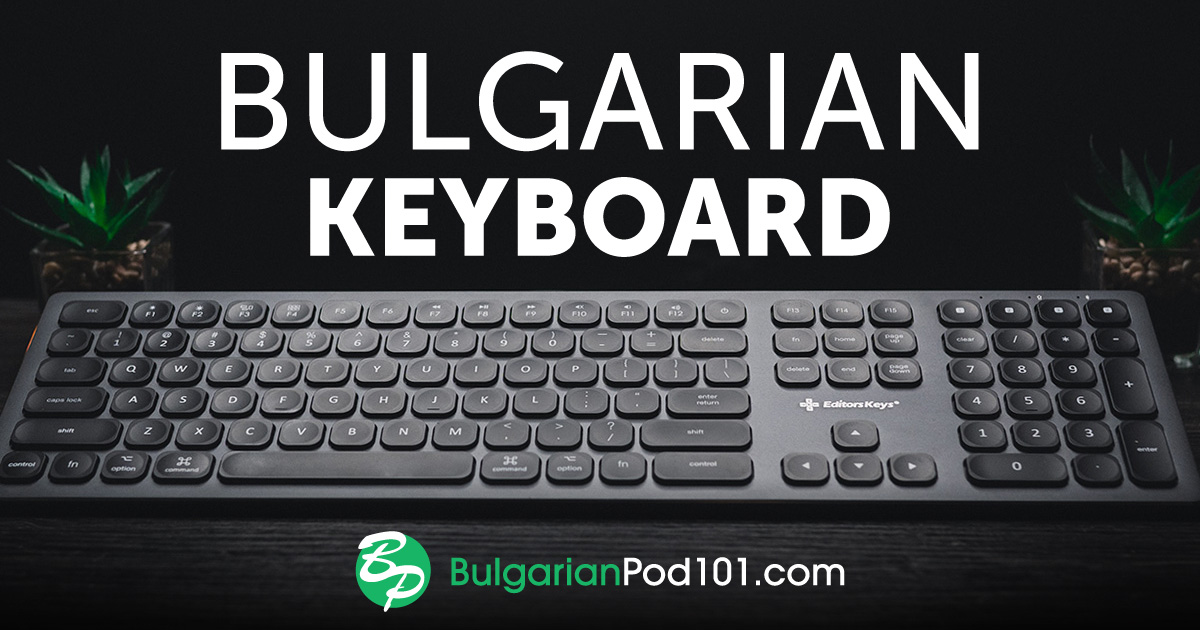
You asked, so we provided—easy-to-follow instructions on how to set up your electronic devices to write in Bulgarian! We’ll also give you a few excellent tips on how to use this keyboard, as well as some online and app alternatives if you prefer not to set up a Bulgarian keyboard.
 Table of Contents
Table of Contents- Why it’s Important to Learn to Type in Bulgarian
- Setting up Your Computer and Mobile Devices for Bulgarian
- How to Activate an Onscreen Keyboard on Your Computer
- How to Change the Language Settings to Bulgarian on Your Computer
- Activating the Bulgarian Keyboard on Your Mobile Phone and Tablet
- Bulgarian Keyboard Typing Tips
- How to Practice Typing Bulgarian
1. Why it’s Important to Learn to Type in Bulgarian

Learning a new language is made so much easier when you’re able to read and write/type it. This way, you will:
- Get the most out of any dictionary and Bulgarian language apps on your devices
- Expand your ability to find Bulgarian websites and use the various search engines
- Be able to communicate much better online with your Bulgarian teachers and friends, and look super cool in the process!
2. Setting up Your Computer and Mobile Devices for Bulgarian
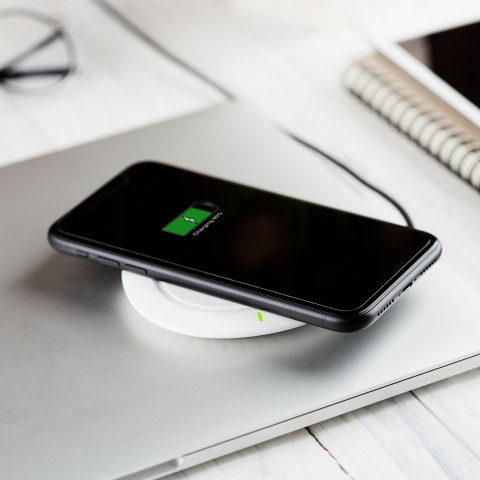
It takes only a few steps to set up any of your devices to read and type in Bulgarian. It’s super-easy on your mobile phone and tablet, and a simple process on your computer.
On your computer, you’ll first activate the onscreen keyboard to work with. You’ll only be using your mouse or touchpad/pointer for this keyboard. Then, you’ll need to change the language setting to Bulgarian, so all text will appear in Bulgarian. You could also opt to use online keyboards instead. Read on for the links!
On your mobile devices, it’s even easier—you only have to change the keyboard. We also provide a few alternatives in the form of online keyboards and downloadable apps.
3. How to Activate an Onscreen Keyboard on Your Computer
1- Mac
1. Go to System Preferences > Keyboard.
2. Check the option “Show Keyboard & Character Viewers in Menu Bar.”
3. You’ll see a new icon on the right side of the main bar; click on it and select “Show Keyboard Viewer.”
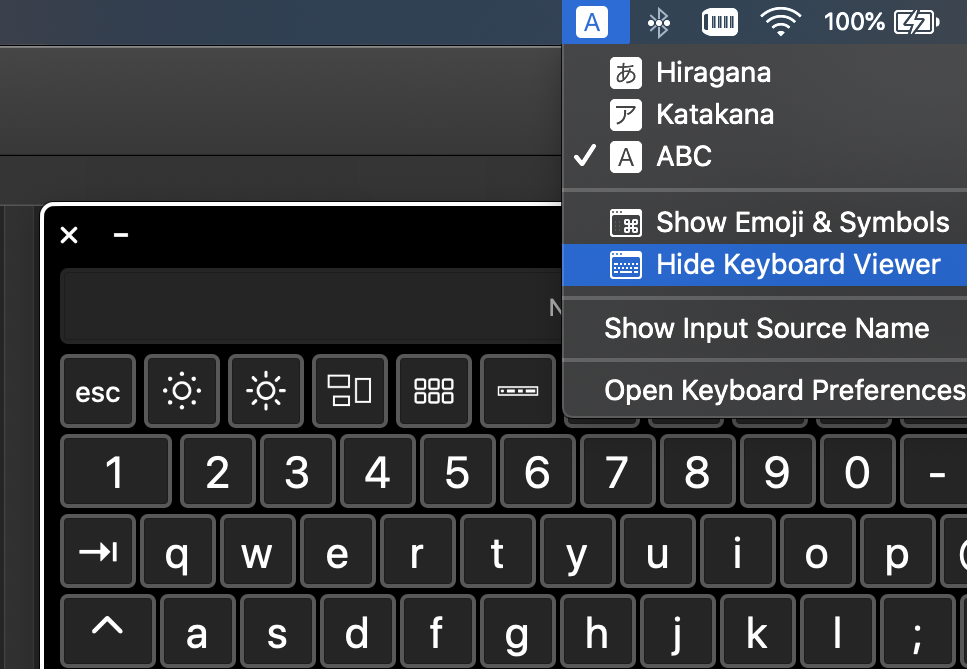
2- Windows
1. Go to Start > Settings > Easy Access > Keyboard.
2. Turn on the option for “Onscreen Keyboard.”
3- Online Keyboards
If you don’t want to activate your computer’s onscreen keyboard, you also have the option to use online keyboards. Here are some good options:
4- Add-ons of Extensions for Browsers
Instead of an online keyboard, you could also choose to download a Google extension to your browser for a language input tool. The Google Input Tools extension allows users to use input tools in Chrome web pages, for example.
4. How to Change the Language Settings to Bulgarian on Your Computer

Now that you’re all set to work with an onscreen keyboard on your computer, it’s time to download the Bulgarian language pack for your operating system of choice:
- Windows 8 (and higher)
- Windows 7
- Mac (OS X and higher)
1- Windows 8 (and higher)
- Go to “Settings” > “Change PC Settings” > “Time & Language” > “Region & Language.”
- Click on “Add a Language” and select “Bulgarian.” This will add it to your list of languages. It will appear as Български with the note “language pack available.”
- Click on “Български” > “Options” > “Download.” It’ll take a few minutes to download and install the language pack.
- As a keyboard layout, you’ll only need the one marked as “Bulgarian – Български.” You can ignore other keyboard layouts.
2- Windows 7
- Go to “Start” > “Control Panel” > “Clock, Language, and Region.”
- On the “Region and Language” option, click on “Change Keyboards or Other Input Methods.”
- On the “Keyboards and Languages” tab, click on “Change Keyboards” > “Add” > “Bulgarian.”
- Expand the option of “Bulgarian” and then expand the option “Keyboard.” Select the keyboard layout marked as “Bulgarian.” You can ignore other keyboard layouts. Click “OK” and then “Apply.”
3- Mac (OS X and higher)
If you can’t see the language listed, please make sure to select the right option from System Preferences > Language and Region
1. From the Apple Menu (top left corner of the screen) go to System Preferences > Keyboard.
2. Click the Input Sources tab and a list of available keyboards and input methods will appear.
3. Click on the plus button, select “Bulgarian,” and add the “Bulgarian” keyboard (not the “Bulgarian – Phonetic”).
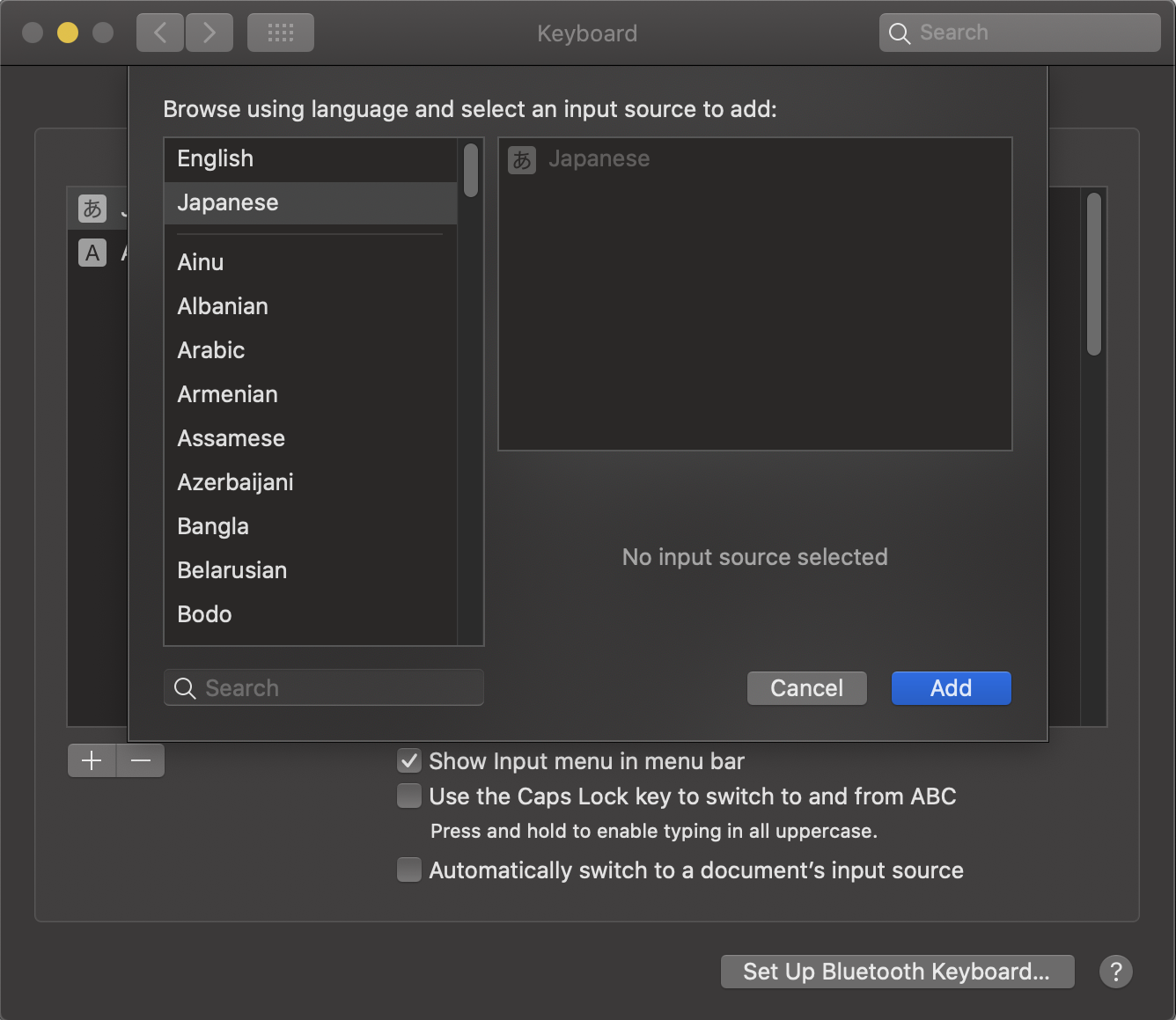
5. Activating the Bulgarian Keyboard on Your Mobile Phone and Tablet
Texting and searching in Bulgarian will greatly help you master the language! Adding a Bulgarian keyboard on your mobile phone and/or tablet is super-easy.
You could also opt to download an app instead of adding a keyboard. Read on for our suggestions.
Below are the instructions for both iOS and Android mobile phones and tablets.
1- iOS
1. Go to Settings > General > Keyboard.
2. Tap “Keyboards” and then “Add New Keyboard.”
3. Select “Bulgarian” from the list.
4. When typing, you can switch between languages by tapping and holding on the icon to reveal the keyboard language menu.
2- Android
1. Go to Settings > General Management > Language and Input > On-screen Keyboard (or “Virtual Keyboard” on some devices) > Samsung Keyboard.
2. Tap “Language and Types” or “ + Select Input Languages” depending on the device and then “MANAGE INPUT LANGUAGES” if available.
3. Select “Български” from the list.
4. When typing, you can switch between languages by swiping the space bar.
3- Applications for Mobile Phones
If you don’t want to add a keyboard on your mobile phone or tablet, this is a good app to consider:
6. Bulgarian Keyboard Typing Tips
Typing in Bulgarian can be very challenging at first! Therefore, we added here a few useful tips to make it easier to use your Bulgarian keyboard.

1- Computer
- When you go to add the Bulgarian keyboard, you’ll notice that there are usually two options: BDS (or standard), and Phonetic. The standard keyboard is the classical one; the Phonetic uses the Latin letters, and when you type them, you get the Bulgarian letter closest to the Latin sound.
- On Mac, if you select Phonetic, you can easily switch to BDS with Ctrl+Space. However, beware of some special keys which produce some special letters from the Bulgarian alphabet:
- q = я
- w = в
- y = ъ
- [ – ш
- ] – щ
- j = й
- x = ь
- c = ц
- ` = ч
- v = ж
- = ю
- Decimal separators in Bulgarian and English differ. For example: English – 105.20 EUR. Bulgarian – 105,20 EUR. English: – 1,005.20 EUR. Bulgarian – 1000,50 EUR. English – 10,005 EUR, Bulgarian: – 10 005 EUR or 10005 EUR.
2- Mobile Phones
- Most often, you can choose between BDS or Phonetic Bulgarian keyboards when you install one on mobile.
- It’s best if you pick one and use it across different devices. While on desktop the Latin letters might be of some help, on mobile you directly see the Cyrilic characters both with the BDS and the Phonetic options.
- Decimal separators in Bulgarian and English differ. For example: English – 105.20 EUR. Bulgarian – 105,20 EUR. English – 1,005.20 EUR. Bulgarian – 1000,50 EUR. English – 10,005 EUR, Bulgarian – 10 005 EUR or 10005 EUR.
7. How to Practice Typing Bulgarian
As you probably know by now, learning Bulgarian is all about practice, practice, and more practice! Strengthen your Bulgarian typing skills by writing comments on any of our lesson pages, and our teacher will answer. If you’re a BulgarianPod101 Premium PLUS member, you can directly text our teacher via the My Teacher app—use your Bulgarian keyboard to do this!

Learn How to Talk About Your Family in Bulgarian
Did you know that only some reptiles and birds don’t parent their offspring? Except for crocodiles, all reptiles (and one family of bird species called megapodes) hatch from eggs and grow up alone, without any family.
The rest of us need family if we are to survive and thrive – humans and animals alike!
At BulgarianPod101, we know how important family is. Therefore, we take care to teach you all the important vocabulary and phrases pertaining to family.
Table of Contents
- Why Is It Important to Know Bulgarian Vocabulary about Family?
- Learn a New Culture? Learn its Family Vocab first
- How BulgarianPod101 Can Help You Learn Bulgarian Family Terms

1. Why Is It Important to Know Bulgarian Vocabulary about Family?
Well, if you’re serious about studying any new language, then learning about the most important social unit in Bulgarian culture would be a crucial part of your education.
What is family, though? Strictly speaking, it’s a group of people who live together and are supposed to take care of one another. Some of them are genetically linked.
Family isn’t just about who we’re related to by blood, of course. It’s also one of the main influences in shaping every child’s life.
Family is Important for Children’s Healthy Development
Family is the single most important influence in a child’s life. Children depend on parents and family to protect them and provide for their needs from the day they were born.
Primary caregivers, which usually comprise parents and family, form a child’s first relationships. They are a child’s first teachers and are role models that show kids how to act and experience the world around them.
By nurturing and teaching children during their early years, families play an important role in making sure children are ready to learn when they enter school.
Families Can Take All Shapes and Sizes
However, the way families are put together is by no means standard.
Single-parent and same-gender households have become a new norm the past few decades, and there’s no shame in this. When there is love, connection and proper care, a child can thrive anywhere.
Everyone also knows that sometimes friends can become like family and remain with us for life, because it’s all about human connection.
After all, we share many commonalities simply because we’re human, and we are programmed to connect with one another and belong to a group. This is very important for our well-being and survival.
It’s All About Feeling Connected
As John Northman, a psychologist from Buffalo, NY, told WebMD – feeling connected to others contributes to mental as well as physical health.
He pointed out that when people feel connected, they feel better physically, and they’re also less likely to feel depressed.
Or, if they do feel depressed, they’d be in a better position to get out of it when they feel they are connecting with others. This is because they would be psychologically supported too, Northman said.
There has even been some links drawn between addiction and feeling disconnected from others. According to an article in Psychology Today, research indicates that addiction is not solely a substance disorder, but also affected by people feeling insecurely attached to others.
It showed that securely attached individuals tend to feel comfortable in and enjoy life, while insecurely attached people typically struggle to fit in and connect.
2. Learn a New Culture? Learn its Family Vocab first
So, it’s clear that for most of us, family is our entry point into connection and belonging. This is true of every culture, so in every country, family takes prominence.
For this reason, BulgarianPod101 offers culturally-relevant lessons that will equip you well to understand families in Bulgaria.
Here are some of the most important Bulgarian vocabulary and quotes about family and parenting!
A) Bulgarian Family Vocabulary
Let’s start with the basic vocabulary. Without this collection of words, you’ll have a hard time describing any member of your family at all.
| Family Terms | ||
|---|---|---|
| Family семейство (semeystvo) |
Great grandfather прадядо (pradyado) |
|
| Mother майка (mayka) |
Grandmother баба (baba) |
|
| Father баща (bashta) |
Grandfather дядо (dyado) |
|
| Wife съпруга (sapruga) |
Grandchild внук (vnuk) |
|
| Husband съпруг (saprug) |
Granddaughter внучка (vnuchka) |
|
| Parent родител (roditel) |
Grandson внук (vnuk) |
|
| Child дете (dete) |
Aunt леля (lelya) |
|
| Daughter дъщеря (dyshterya) |
Uncle чичо (chicho) |
|
| Sister сестра (sestra) |
Niece племенница (plemennica) |
|
| Brother брат (brat) |
Nephew племенник (plemennik) |
|
| Younger sister по-малка сестра (po-malka sestra) |
Younger brother по-малък брат (po-malyk brat) |
|
| Older brother батко (batko) |
Great grandmother прабаба (prababa) |
|
| Cousin братовчед (bratovched) |
Mother-in-law свекърва, тъща (svekarva, tashta) |
|
| Father-in-law свекър, тъст (svekar, tast) |
Sister-in-law зълва, балдъза (zalva, baldaza) |
|
| Brother-in-law зет, девер (zet, dever) |
Partner партньор (partnyor) |
B) Quotes About Family
One of the ways to improve your Bulgarian language skills is by memorizing quotes from books, or poems.
Either source some from Bulgarian literature, or make use of ours!
Човек не избира семейството си. То е негов Божи дар, както и той е дар за близките си.
Chovek ne izbira semeystvoto si. To e negov Bozhi dar, kakto i toy e dar za blizkite si.
“You don’t choose your family. They are God’s gift to you, as you are to them.” – Desmond Tutu
Семейството не е нещо важно. То е всичко.
Semeystvoto ne e neshto vazhno. To e vsichko.
“Family is not an important thing. It’s everything.” – Michael J. Fox
Семейство значи, никой да не бъде изоставен или забравен.
Semeystvo znachi, nikoy da ne bade izostaven ili zabraven.
“Family means no one gets left behind or forgotten.” – David Ogden Stiers
Моето семейство е моята сила и моята слабост.
Moeto semeystvo e moyata sila i moyata slabost.
“My family is my strength and my weakness.” – Aishwarya Rai
Семейството е един от шедьоврите на природата.
Semeystvoto e edin ot shedyovrite na prirodata.
“The family is one of nature’s masterpieces.” – George Santayana
Когато настъпи беда, семейството е, което ви подкрепя.
Kogato nastapi beda, semeystvoto e, koeto vi podkrepya.
“When trouble comes, it’s your family that supports you.” – Guy Lafleur
Семейството е първата и жизнено важна клетка на обществото
Semeystvoto e parvata i zhizneno vazhna kletka na obshtestvoto
“The family is the first essential cell of human society.” – Pope John XXIII
Не съществува такова нещо като забавление за цялото семейство.
Ne sashtestvuva takova neshto kato zabavlenie za tsyaloto semeystvo.
“There is no such thing as fun for the whole family.” – Jerry Seinfeld
Трябва да защитаваш честта си. И семейството си.
Tryabva da zashtitavash chestta si. I semeystvoto si.
“You have to defend your honor. And your family.” – Suzanne Vega
Всички щастливи семейства си приличат; всяко нещастно семейство е нещастно по свой начин.
Vsichki shtastlivi semeystva si prilichat; vsyako neshtastno semeystvo e neshtastno po svoy nachin.
“All happy families are alike; each unhappy family is unhappy in its own way.” – Leo Tolstoy
C) Test Your Knowledge!
Do you feel you have learned a lot in this blog? Let’s quickly test that!
In the table below, match the Bulgarian vocabulary on the left with the definition of the relative in the right column.
| MY RELATIVES | |
|---|---|
| Relative Name | Definition |
| 1. семейство | a. My male child |
| 2. майка | b. My older male sibling |
| 3. баща | c. My female sibling |
| 4. съпруга | d. My child’s child |
| 5. съпруг | e. My child’s female child |
| 6. родител | f. My female parent |
| 7. дете | g. My grandparent’s mother |
| 8. дъщеря | h. Mother to one of my parents |
| 9. син | i. Relatives |
| 10. сестра | j. My female child |
| 11. брат | k. My younger male sibling |
| 12. по-малка сестра | l. Male spouse |
| 13. по-малък брат | m. The father of one of my parents |
| 14. батко | n. My child’s male child |
| 15. прабаба | o. My children’s father or mother |
| 16. прадядо | p. The sister of one of my parents |
| 17. баба | q. The brother of one of my parents |
| 18. дядо | r. My male parent |
| 19. внук | s. My sibling’s female child |
| 20. внучка | t. My sibling’s male child |
| 21. внук | u. My male sibling |
| 22. леля | v. My parents’ sibling’s child |
| 23. чичо | w. Female spouse |
| 24. племенница | x. The grandfather of one of my parents |
| 25. племенник | y. The person I am a parent to |
| 26. братовчед | z. My younger female sibling |
How did it go? Don’t worry if you had trouble with it – you’ll get there! With a bit of practice, and our help at BulgarianPod101, you’ll soon have these family terms under the belt.
3. How BulgarianPod101 Can Help You Learn Bulgarian Family Terms
We hope that we helped you expand your family in Bulgarian vocabulary!
BulgarianPod101, with its innovative online learning system, stands out among online learning platforms to help you master Bulgarian easily.
Our lessons are tailored not only to increase your language skills, but to also inform you of Bulgarian culture, including the Bulgarian family structure.
When you sign up, you will get instant access to tools like:
1 – An extensive vocabulary list, regularly updated
2 – A new Bulgarian word to learn every day
3 – Quick access to the Bulgarian Key Phrase List
4 – A free Bulgarian online dictionary
5 – The excellent 100 Core Bulgarian Word List
6 – An almost limitless Lesson Library for learners of all levels
Further speed up your learning with the help of a personal tutor, who will first assess your current Bulgarian language abilities to personalize your training and tailor it to your needs.
Hard work always pays off, and to help you in this, BulgarianPod101 will be there every step of the way toward your Bulgarian mastery!

















